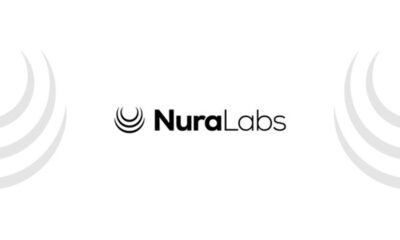Business
Asset Sale vs. Stock Sale: A Comprehensive Guide for Savvy Business Buyers

When structuring the sale of a corporate business, the transaction can be structured in one of two ways: the purchase and sale of the company’s assets or the purchase and sale of corporate stock. In fact, asset sales were once one of the most prominent ways to buy equities, with approximately $100 billion worth of assets transacted between firms in 2004.
However, it isn’t like one size fits all, it can vary from industry to industry. How do you decide between an asset purchase vs. a stock purchase? Both deals involve major differences, perks and challenges for buyers.
Considerations for Different Business Types
Before discussing asset vs. stock sales, note that if you have created an LLC, a sole proprietorship, or a partnership to run your business, then the deal cannot be structured as stock sales as they lack stock. These entities have partnership or membership interests, and their sales are treated as asset sales for tax purposes, regardless of framing. The asset vs. stock sale consideration applies only to incorporated businesses (C-corporations, S-corporations) or LLCs taxed as S-corporations. This article assumes we’re dealing with corporations.
Understanding Asset Sale
An asset sale involves acquiring individual assets from the target company. These assets can be tangible, such as equipment, inventory, and real estate, or intangible, including intellectual property (patents, trademarks, copyrights), goodwill, customer lists, and licenses. Typically, liabilities like long-term debt remain with the seller, making this a “cash-free, debt-free” transaction for the buyer.
Advantages for the Buyer
Tax Benefits
A significant advantage of an asset purchase is the ability to “step-up” the tax basis of depreciable assets. This means you can assign a higher value to assets that depreciate quickly (like machinery with a 5-year lifespan) and claim greater tax deductions in the initial years. This strategy can significantly improve cash flow during the critical early stages of ownership.
Limited Liability Exposure
Unlike a stock sale, you have more control over the liabilities you inherit. You can choose which liabilities to assume, if any, potentially shielding yourself from unknown or undisclosed debt, environmental issues, product liability claims, or employee lawsuits.
Selective Purchasing
You have the flexibility to pick and choose which assets you want to acquire. This allows you to tailor the purchase to your specific needs and avoid unwanted assets, such as outdated equipment or excess inventory. This can be particularly valuable if the target company has diversified operations, and you only require a specific segment of their business.
Challenges to Consider
Contract Renegotiation: Transferring certain contracts, especially with customers and suppliers, may require renegotiation, adding time and complexity to the process.
Increased Costs for Seller: The tax implications for the seller are typically less favorable in an asset sale, potentially leading to a higher purchase price for you.
Administrative Burdens: Sharing ownership of individual assets can be cumbersome, involving retitling and addressing assignability limitations.
Understanding Stock Sales
In a stock sale, you acquire ownership of the entire company by purchasing the selling shareholders’ stock. This essentially means you inherit all the assets and liabilities of the business as a whole. Think of it as buying the entire company “lock, stock, and barrel.”
Advantages for the Buyer
Streamlined Process
Stock purchases are generally simpler to execute compared to asset sales. You avoid the hassle of individually valuing and transferring numerous assets, potentially saving time and transaction costs. This streamlined approach can be particularly attractive if the target company has a vast number of assets.
Continuity of Contracts
Existing contracts with customers, suppliers, and employees typically transfer automatically with the stock purchase. This minimizes disruption to ongoing business operations and helps maintain established relationships with key stakeholders. A seamless transition is crucial for maintaining customer loyalty and employee morale.
Potential Tax Benefits
For companies with a large number of intellectual property rights or crucial government contracts that are difficult to assign individually, a stock sale may be advantageous. Since ownership of these assets remains with the corporation, there’s no risk of jeopardizing their validity during the transfer process.
Challenges to Consider
Limited Tax Advantages: Unlike asset sales, you cannot “step-up” the tax basis of depreciable assets, potentially leading to higher future taxes.
Inheriting Liabilities: You assume all the liabilities of the company, including unknown or undisclosed potential risks. This can be mitigated through representations, warranties, and indemnifications in the purchase agreement.
Shareholder Complications: Acquiring stock may involve dealing with multiple shareholders, potentially leading to delays and increased costs if some shareholders are unwilling to sell.
Choosing the Right Path: A Data-Driven Decision
There’s no one-size-fits-all answer when it comes to asset sales vs. stock sales. The optimal choice depends on various factors specific to the business you’re acquiring and your overall strategic objectives. Here are some key considerations to guide your decision-making process:
- Tax Implications: Consult with your business attorney or tax advisor to understand the tax consequences of both options for both you and the seller.
- Due Diligence: The level of due diligence required can vary depending on the chosen structure. A stock purchase typically necessitates a more comprehensive examination due to the broader range of liabilities inherited.
- Nature of Assets: If the business relies heavily on intellectual property or specific contracts, a stock sale might be more suitable to ensure their seamless transfer.
- Seller’s Preferences: The seller’s tax situation and willingness to negotiate liabilities will also play a role in determining the preferred structure.
- Industry Standards: Certain industries may have established norms regarding preferred acquisition structures. Researching common practices within your target company’s industry can provide valuable insights.
Conclusion
Ultimately, the choice between an asset sale and a stock sale hinges on a careful analysis of your specific circumstances and long-term goals. By considering the factors discussed above and seeking professional guidance, you can make an informed decision that lays the foundation for a successful and profitable acquisition. Remember, a well-structured deal can unlock significant synergies, accelerate growth, and create lasting value for your business.
-

 Foreign Policy6 days ago
Foreign Policy6 days agoInside Schedule F: Will Trump’s Federal Workforce Shake-Up Undermine Democracy?
-

 Press Release5 days ago
Press Release5 days agoIn2space Launches Campaign to Make Space Travel Accessible for All
-

 Press Release1 day ago
Press Release1 day agoNura Labs Files Revolutionary Patent: AI-Powered Wallet Solves the $180 Billion Crypto Staking Complexity Crisis















